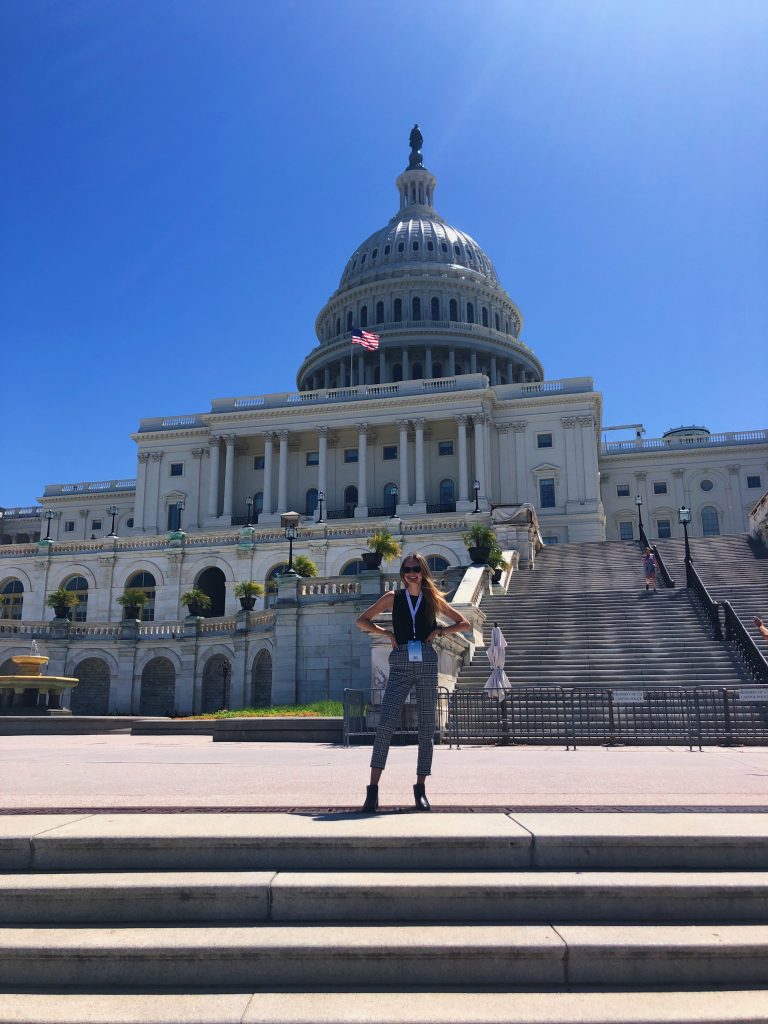Name: Morgan Coursey
Class Year: 2020
Major: Sociology
Hometown: Wayne, Pa.
Internship Organization: Pennsylvania Prison Society
Job Title: Summer Internship
Location: Philadelphia
What’s happening at your internship?
At my internship thus far, I have been responding to letters and calls from incarcerated people and their families, processing Official Visitor requests (volunteers from the Prison Society who have unsolicited access to speak to incarcerated people and prison officials to ensure humane prison conditions) and I have been helping with the upcoming issue of the organization’s bimonthly newsletter, Graterfriends.
Why did you apply for this internship?
I applied for this internship because I respected the deep history (which I have since learned more about) behind the Prison Society, and after tutoring at the Glen Mills School with the Petey Greene Program, I was looking for an opportunity to work with incarcerated people and their families. I also found that the work the Prison Society does helps to highlight, in a material sense, many of the sociological and philosophical phenomena that I have discussed at Bryn Mawr.
What is something you have learned from your internship that you didn’t expect?
When I first started reading letters from prisoners, I was really surprised about what goes on inside of our state’s prisons. Though I understand that there are limitations and challenges in prison distinct from those in the outside world, it was really disheartening to read about people not receiving adequate or timely medical care for serious health issues, being assaulted, filing grievances and being ignored, having mail withheld or tampered with, losing touch with family and friends, being forced into solitary confinement, and just feeling ignored and forgotten.
What is most rewarding about your internship?
I think the most rewarding aspect of this internship so far is being able to provide people with hope. Just this past Friday, a woman wrote in from a county jail and shared that she had gotten engaged exactly a year ago. She mentioned that she and her fiance were previously using drugs and were on the streets. She was looking for information about how they could get married, as they are incarcerated in the same prison. Finally, she wrote that she did not have anyone on the outside that she was in correspondence with that could help them. I was fortunate enough to be that person on the outside to get back to her with some information about how she might be able to apply for a marriage license or even have a ceremony in prison.
Even though I know as an organization we cannot solve all the problems of the people who contact us, just being able to correspond with people who need and deserve a listening and understanding ear is really special. I am looking forward to learning more about the history and philosophy behind the Prison Society, prison conditions today, and finally, what we as both an organization and as individuals can do to ensure that conditions are humane inside of our prisons.


